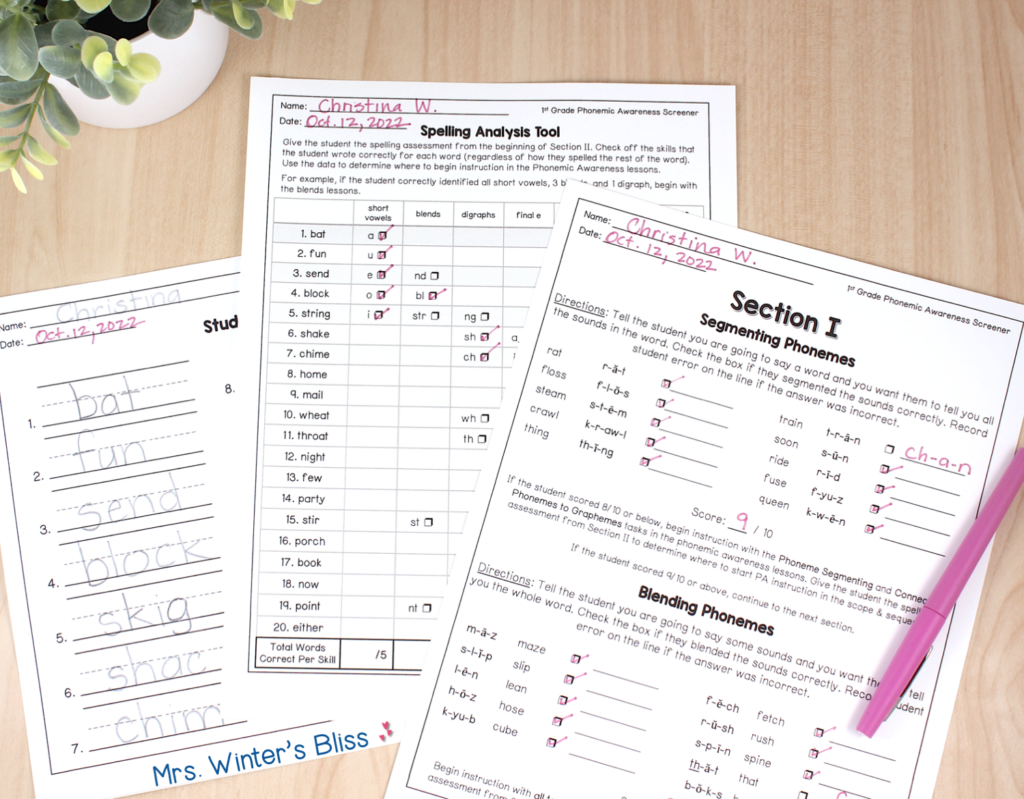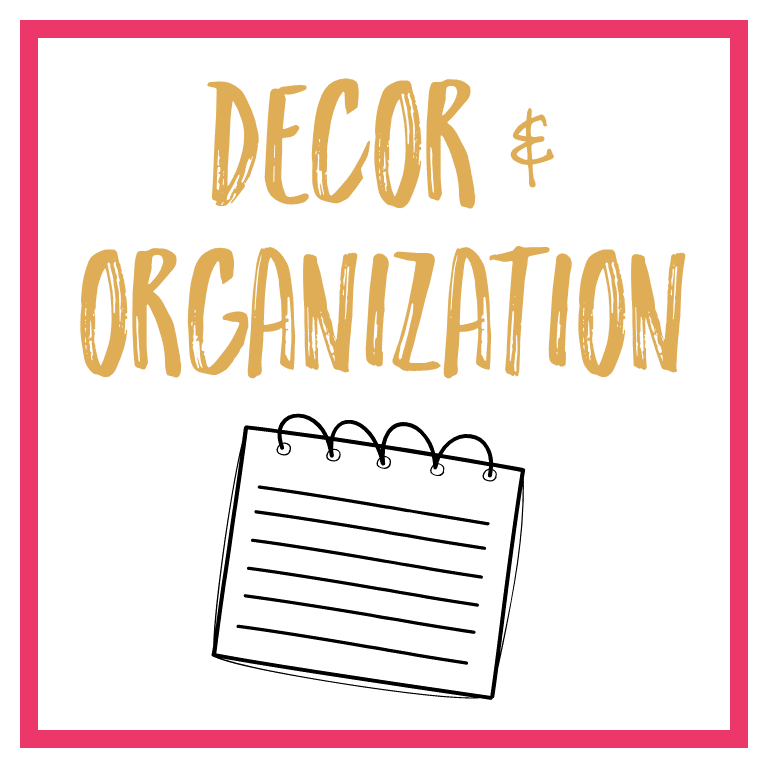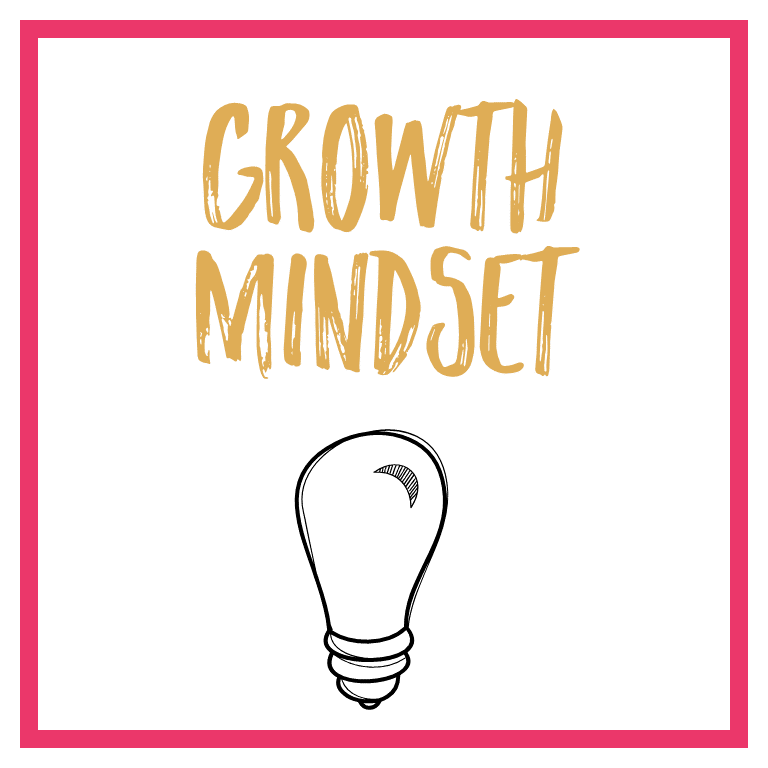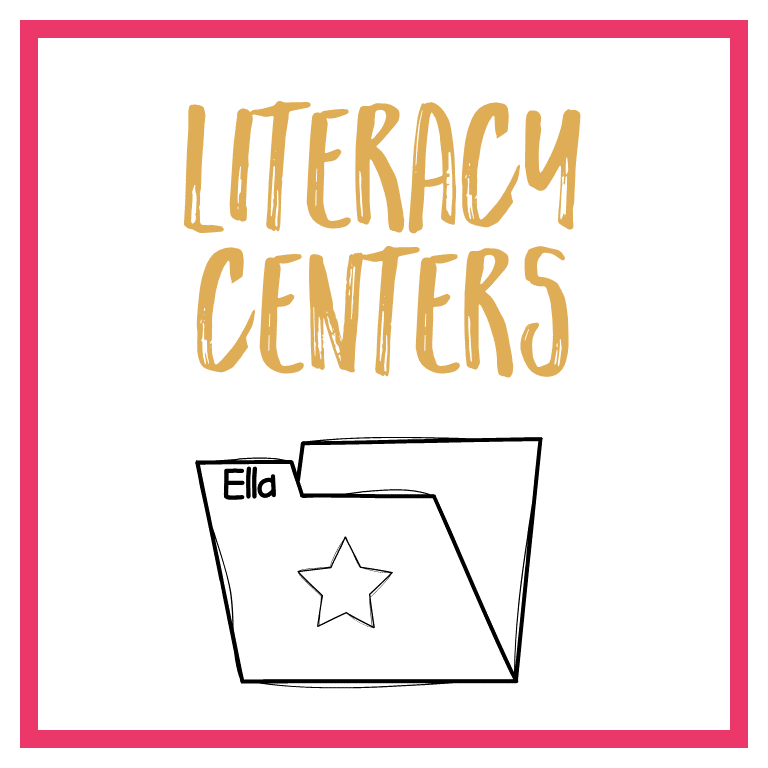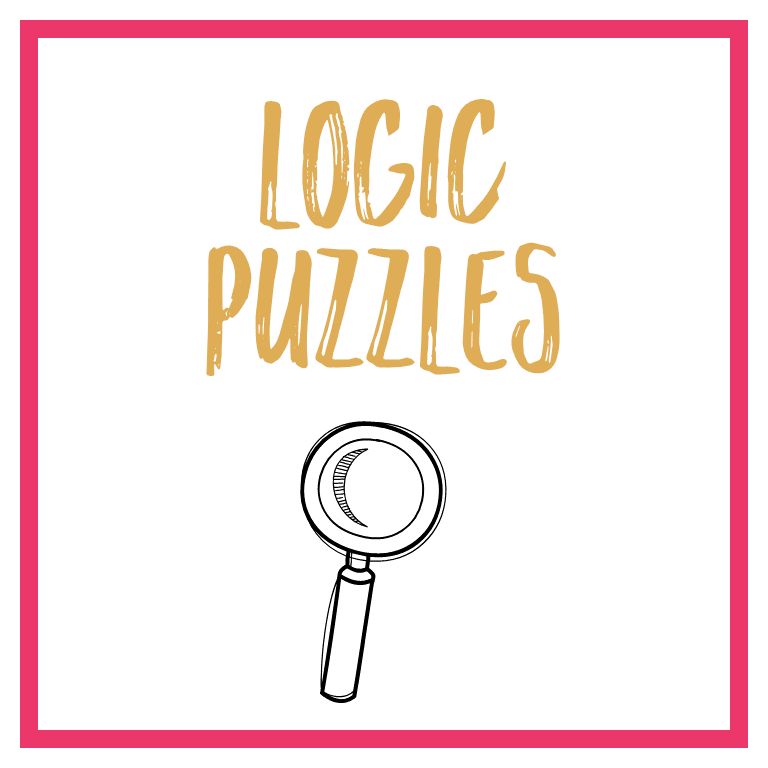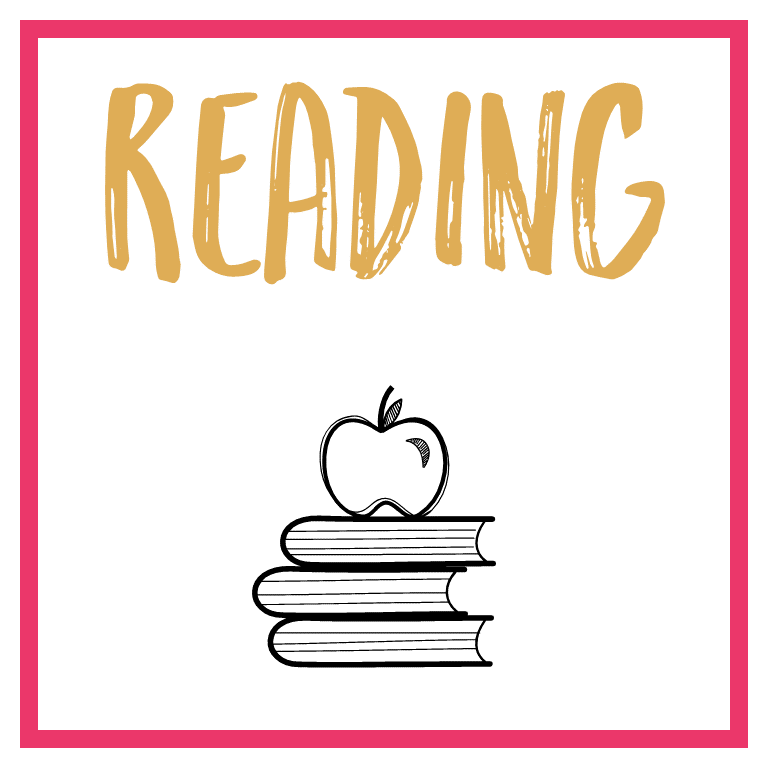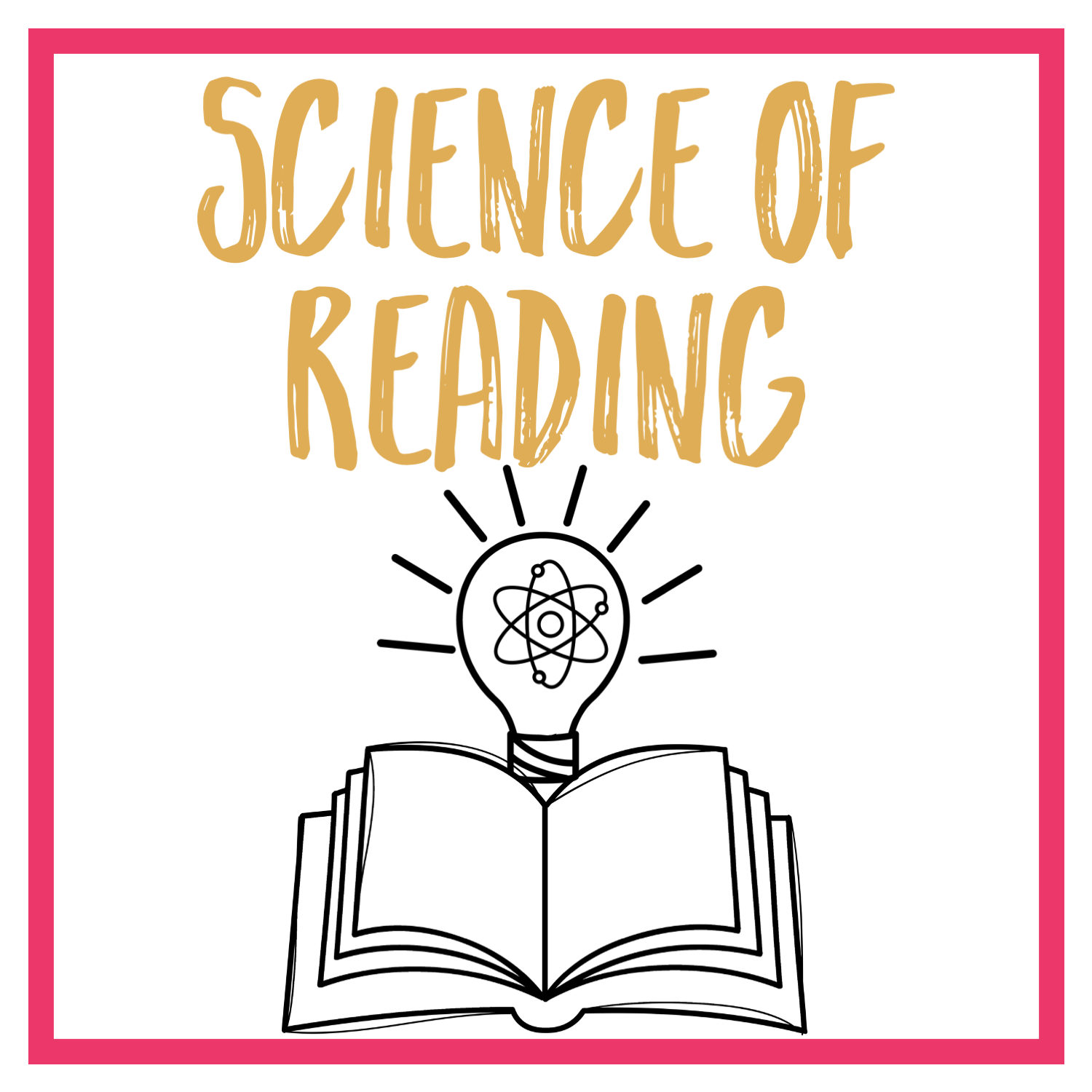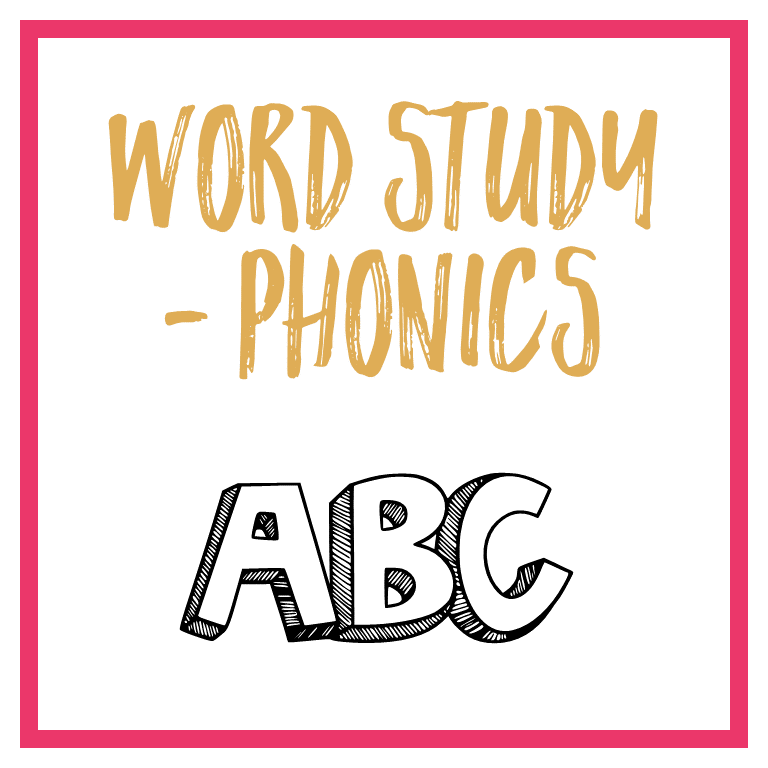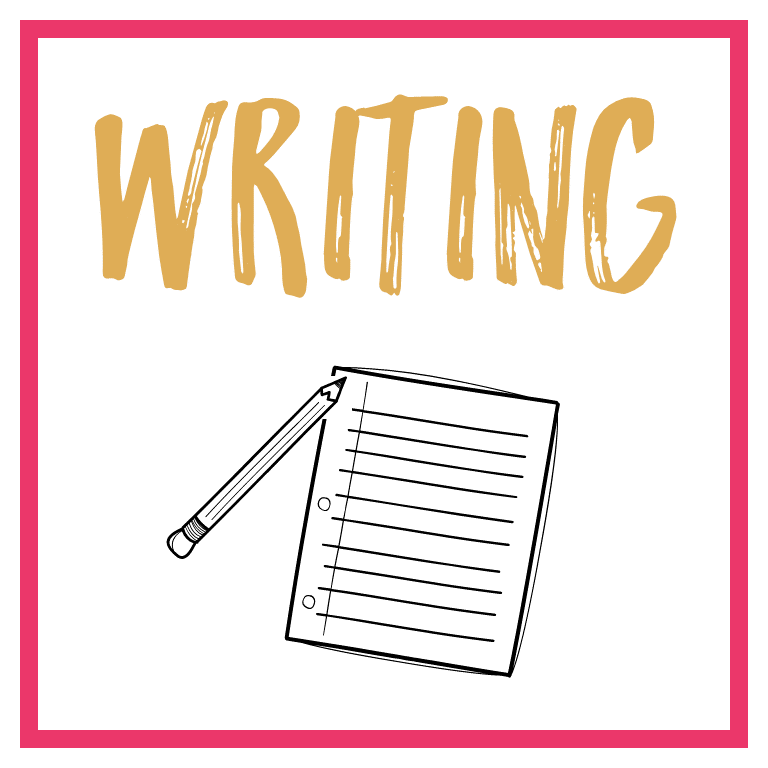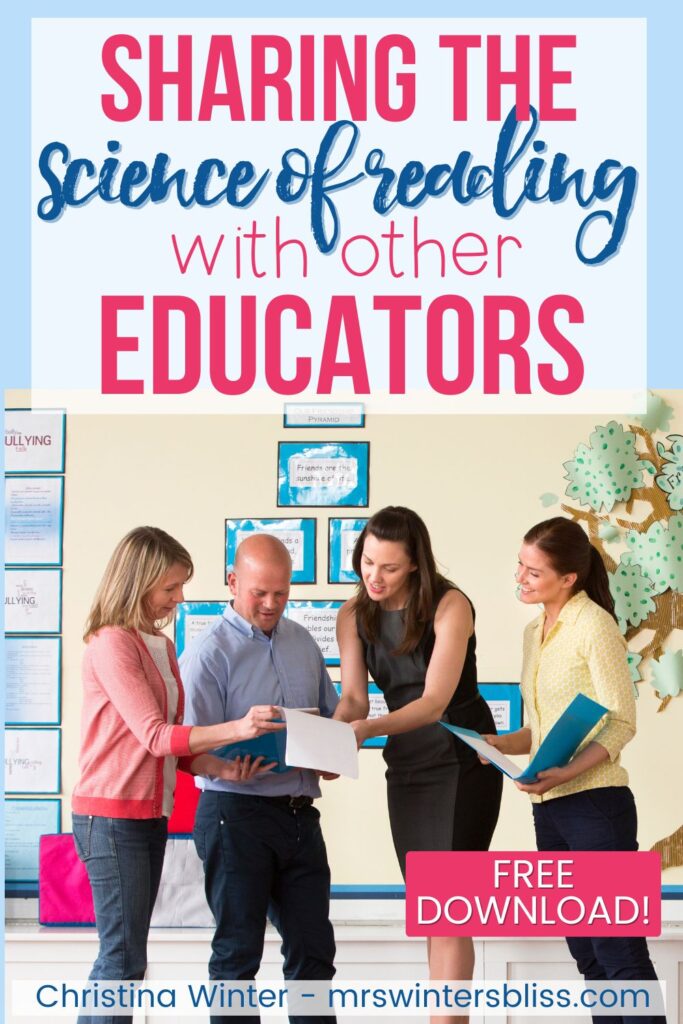
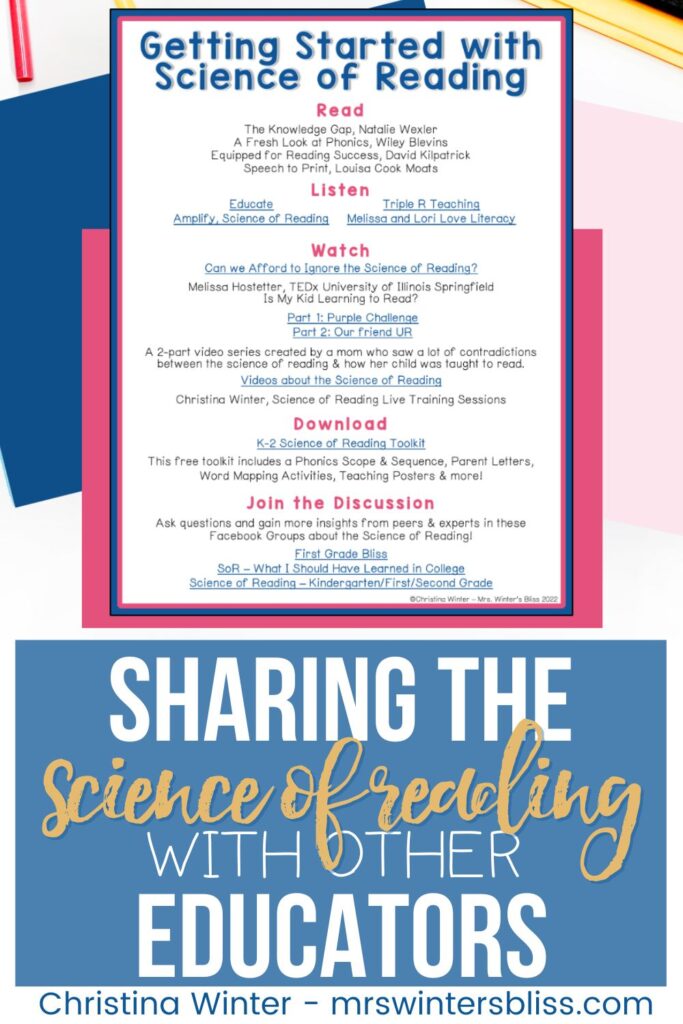
In this post, I first discuss why some educators resist the science of reading. Then, I offer suggestions and resources to help you educate your colleagues and administrators about the science of reading and the benefits of structured literacy.
In a recent blog post, I shared information about how to help parents learn more about the science of reading. While I know it was helpful to many, I did hear from teachers who needed something a little different. In addition to helping parents, they asked for help educating colleagues and administrators about the science of reading.
These teachers work in schools where balanced literacy is the norm and there is resistance to moving towards a structured literacy approach. They need resources, tips, and ideas for getting their colleagues and administrators on board with the science of reading.
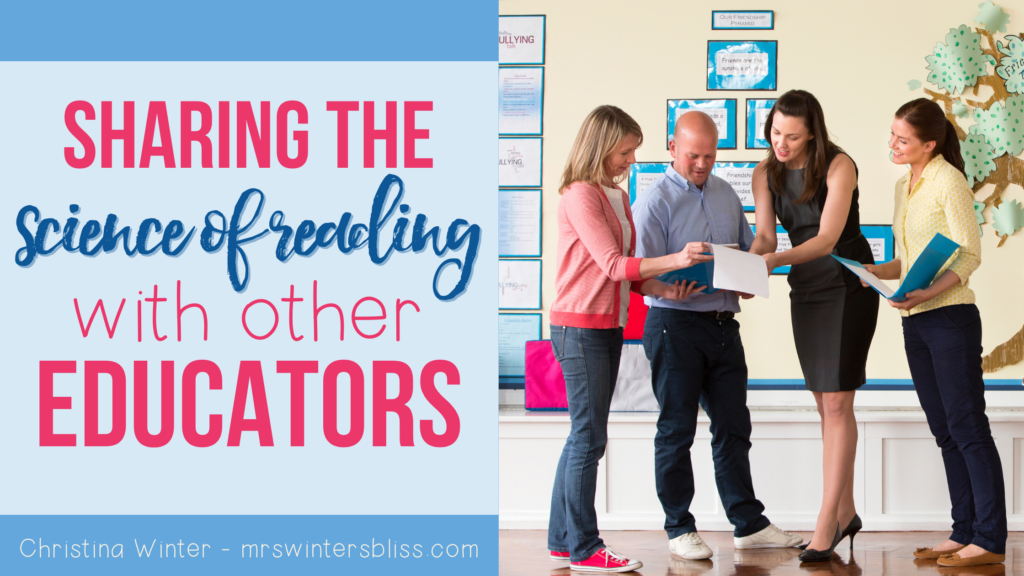
I get it. Change in schools can be difficult and it is often slow. When someone has been doing something one way for many years, it can be hard to understand why they need to change their ways. For many, balanced literacy is all they know. Many teachers have never taught about the science of reading and structured literacy. But I believe that when we know better, we can do better. Educators need a clear understanding of what the science of reading is and what it is not.
Today I’ll discuss reasons why some resist the science of reading. I’ll then share resources you can gently and kindly share with fellow educators to help them better understand the science of reading.
Why Do Educators Resist the Science of Reading?
Change requires buy-in. If you don’t yet have buy-in, it is important to understand why. So let’s start by examining three reasons why there may be resistance to moving towards a structured literacy approach in your school.
1. The Cultures of Science and Education are Different
As a discipline, education has placed a lot of value on observation and hands-on experience. Many teachers feel their experience, intuition and observations carry more weight than what a scientist may have to say. After all, the scientist has never spent a day in the classroom with your first grade students! Many educators who use balanced literacy believe, from their experience, that it works. And it does…. for some. But it does not work for ALL.
According to Nancy Young’s Ladder of Reading and Writing, learning to read seems effortless for 5-10% of children. A broad range of methods (including balanced literacy) will teach about 35% of children to read. But for approximately 40% of students, learning to read requires code-based, systematic, and explicit instruction – i.e. structured literacy.
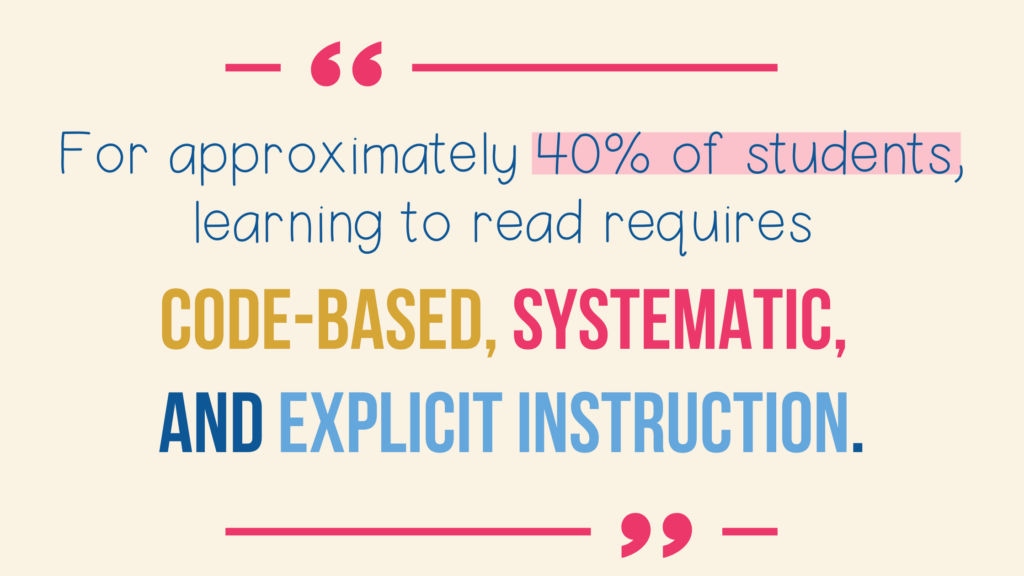
Reading is a more complex skill than we realize. Teachers don’t always recognize that the methods they use are not consistent with facts and findings from research that has been known for many years. A better understanding of what is meant by the word ‘science’ would reduce misconceptions and help to promote practices aligned with the science of reading.
2. Phonics Instruction is a Controversial Topic
There are misunderstandings when it comes to phonics instruction in structured literacy and balanced literacy classrooms. Some SoR proponents claim that in a balanced literacy classroom there is no phonics instruction. While the other side says that in a structured literacy classroom there is only phonics instruction. The truth is that neither of these statements are true.
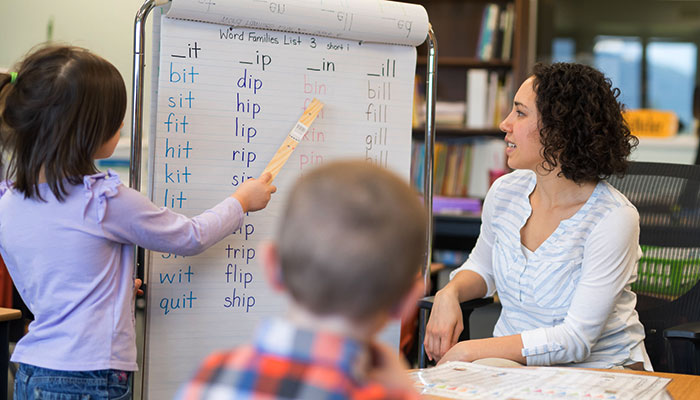
In most balanced literacy classrooms there is phonics instruction. The problem is that the instruction is not systematic and sequential. But to say a balanced literacy teacher doesn’t teach phonics isn’t fair and can lead to feelings of defensiveness.
Balanced literacy teachers may claim that structured literacy teachers don’t teach fluency, comprehension, vocabulary, etc because they spend so much time on phonics. Those who understand the science of reading, understand that it is more than phonics. The truth is that in a structured literacy classroom, there is dedicated time for phonics AND language comprehension instruction.
3. Discussions about the Science of Reading can lead to Uncomfortable Feelings
Many balanced literacy teachers feel attacked, afraid and defensive when they begin to learn about the science of reading. It is understandably uncomfortable to confront the mistakes that may have been made in the past. They may be frustrated to feel they have to leave behind all they ever did and afraid that a structured approach may take the joy out of teaching.
On the other side, there is often anger from science of reading advocates. They are angry because they have seen many children fail to learn to read because this information is not known. But SoR advocates should never shame those who are beginning to learn about structured literacy because when one person feels defensive, it is difficult to be open to discussion, learning, and growing.
How Can We Get Educators On Board with SoR?
Now that we understand why there may be resistance to the science of reading, let’s discuss how we can change that. I believe that change can take place when we kindly and gently educate our colleagues and administrators about the science of reading. When we provide them with research, data and resources to help them better understand the science of reading, they will be more open to adopting a structured literacy approach.
Share Science of Reading Research and Resources with your Colleagues
If structured literacy-aligned instruction is not the norm in your school, I would encourage you to begin by having light conversations with colleagues about the science of reading. Share some of what you have learned and where you learned it! Talk about videos you have watched, podcasts you listened to, or books you read that changed the way you think about reading instruction.
You may find some teachers who don’t seem interested but you will also probably find those who are curious and want to learn more about what you have to say. There are a number of ways you can continue to learn and grow with these like-minded educators.
In this free, downloadable PDF I offer my suggestions for the best books, podcasts, videos, and free printable resources for learning about the science of reading. These are all wonderful resources to share with colleagues who are also interested in learning more.
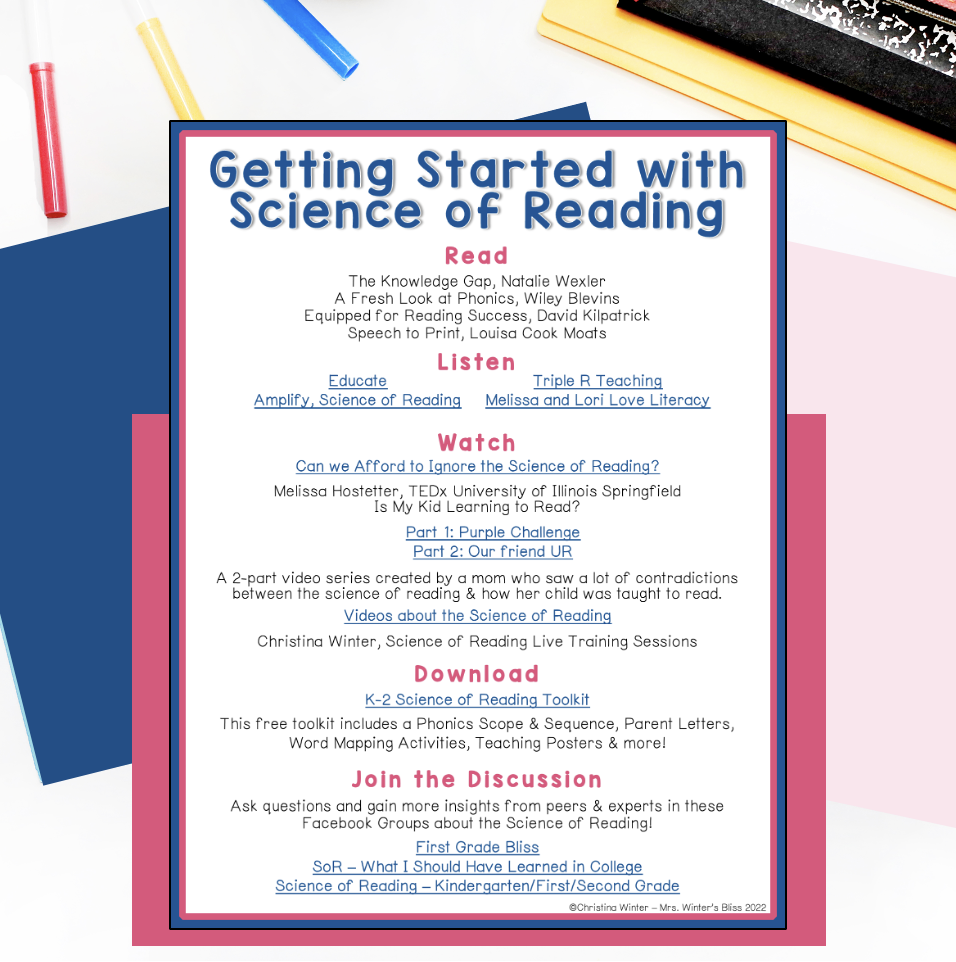
Download this free Getting Started with Science of Reading resource here!
Share the Data with your Administration
Changes at the school and district-level often come down to data. Fortunately, there is plenty of data to support the science of reading and a structured literacy approach!
If you are looking for general talking points about the Science of Reading, what it is and what it looks like in the classroom, this article from the Institute for Multi-Sensory Education is a great place to start!
The National Reading Panel assessed the effectiveness of different approaches used to teach children to read. The report of their findings can be found here, but it is quite lengthy! This article nicely summarizes the research findings and would be a helpful one to share with your administration.

Finally, don’t be afraid to share your own anecdotal data. Your observations and classroom data can be an important catalyst for change. Show your administrator your students’ reading progress. Share with them the SoR-aligned strategies and resources you have used to successfully support this progress.
Join Online Learning Communities
I think it is important to acknowledge we may not all work in schools where others are ready to learn about the science of reading. If you work in a school where you don’t yet feel comfortable having these types of conversations with colleagues and administrators, you are not alone. To feel supported I would encourage you to find an online community. They are a great way to connect with like-minded educators and will allow you to continue to grow your learning.
I have found that these Facebook groups are helpful places to learn about the science of reading:
The Science of Reading- What I Should have Learned in College
The Science of Reading- Kindergarten/First/Second Grade
I hope the information I’ve shared here today will allow you to share information about the science of reading with your colleagues and administrators in a way that feels comfortable and safe for all! When we all know better, we can all do better!

